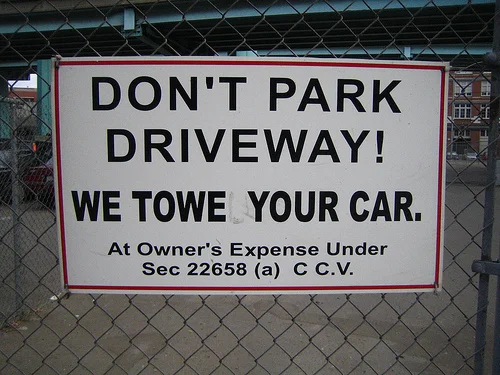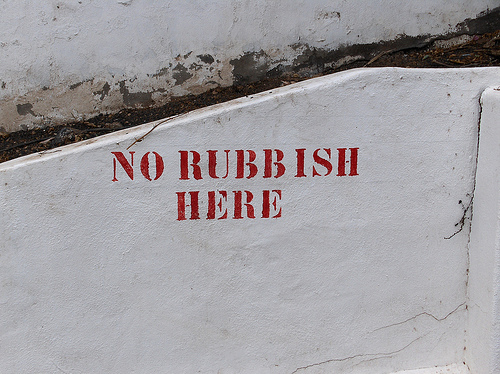Nine things I learned about proofreading in the last two months
I have spent the last two months working with a copyeditor and two proofreaders on my novel A Pair of Docks. I am a fairly clean writer. I do not usually have run-on sentences, I can spell, I generally have subject-verb agreement and I know how to use most major punctuation marks (although I still struggle a bit with commas, em dashes and colons). In my day job, I often work as an editor and proofreader of technical writing. I thought the copyedit and proofreading portion of publishing my book would be a breeze.
I was very wrong. Here is what I learned:
1) Consistency, consistency, consistency:
My manuscript is fairly complex in the sense that the characters are trying to solve a mystery. They read things, Google things, write things down, quote things, work with symbols and sometimes very large numbers and refer to past conversations. There are sounds, and physics rules that run through a main character’s head. All of these portions of the text had to have their own formatting, and set of rules and that formatting and those rules had to be applied consistently throughout the document. This requirement to be consistent, more than missed commas or typos, was the main challenge in my manuscript. To the extent you can, go through and identify all of these types of unique formatting before the copyeditor starts, decide how you are going to treat them and make a style guide (see below). There will be ones that you did not think of that crop up as you go, but if you have the style guide started, you can just decide on a rule and plunk it in to the style guide.
2) Develop a written style guide right from the beginning:
There are only a few absolute rules in punctuation, spelling and grammar and different copyeditors and proofreaders will have different preferences. Do you allow sentence fragments or run-on sentences? Do you use colons? Do you use the Oxford comma? Do you put a comma before the word too when it means also all the time, none of the time or just some of the time? Do you use single quotations or double quotations? Do you use single quotation or double quotations for things that are referenced or ‘air quoted’? Do you leave a space on either side of a set of ellipses or close it up to the text? Work with the first person in your line up of proofreaders to develop this style guide that outlines all of the rules around your manuscript and how you are going to treat unique elements from the beginning. Review it yourself. Make sure you are happy with it and give it to the next people in your proofreading line up. This will not solve all of your problems, but it will help a lot.
3) Expect to proof your own manuscript more times than you ever though possible or desirable:
You in the end, especially if you are self-publishing, but even if you are not, are the person who cares the most about this manuscript. You are the only person who knows exactly what you are trying to say and you are the only person who will read it more than twenty times (you will probably in the end read it at least fifty times – your proofreaders will not). Even though it is said that you cannot proofread your own work, you actually can, and you are one of the most important proofreaders of your own work. You must review and proofread it before you send it to a copyeditor, and you must review and proofread it after each round with a copyeditor or proofreader. They will miss things and make mistakes, just as you will. It is critical that you review your document with eagle eyes after each round of editing, and catch as much as you can. Reading your manuscript for the fifty-second time is an excruciating process, but it is necessary. Spend time with it. Do not rush it.
4) Reformat your manuscript and print it out to proofread it early in the process:
I like trees. I fancy myself an environmentalist. I resisted printing out my document to proofread it. The thought of wasting that much paper and ink horrified me. But there is no way around it. It has to be done. Better yet reformat it into book form (by either using columns or changing the paper size settings and changing the line spacing) and print it out. Mistakes your eyes have glossed over time and time again will be obvious. Do this after the copyedit before you submit it to the proofreader. You might need to do it a couple of times. You will save yourself a lot of headaches trying to get things fixed once it has already been formatted.
5) Expect mistakes:
You will make mistakes, and so will your copyeditor and your proofreader(s). There is no way around it. We are all human and there are so many moving parts (letters, words, punctuation marks, spaces) in your manuscript that it is impossible to catch everything. As Grammar Girl pointed out: “If I produce 1,000 words a day, and I let 1 typo slip by every week, that's actually a 99.986% success rate. If you think about it in terms of letters rather than words, since most typos happen at the level of letters, that 1 typo a week equates to about a 99.997% success rate.” That is actually pretty good when you think about it. According to Copyediting.com an association of professional copyeditors, studies have indicated that the best a human can do—even a professional proofreader—is 95% error detection. So unless you have paid someone to review your manuscript again and again, or devote themselves to it for several weeks, and let’s face it, most of us cannot afford that, expect a few errors to slip through. It is your job as the writer to do a final sweep – but also to understand that you, too, will miss things.
6) The more eyes the better:
Everyone is better at catching different things. My copyeditor was great at commas, capitals, spelling, general style and working with me to determine my goals around the manuscript. My first proofreader caught paragraphing issues, comma and consistency issues. My second proofreader helped me with hyphenating adjectives, identifying coordinate adjectives and doing the final sweep. All of those inputs were essential. But more eyes also resulted in conflicts and challenges that I had to resolve myself and sometimes take back to the preceding person in the line-up to ask their thinking or logic. As one of the professionals who worked with me pointed out: “I am more flexible Grammar Girl and she is more Chicago.”
7) Keep a list of your own bad habits and check them first the next time around:
I way overuse the words “Well” and “So” at the beginning of dialogue. I also overuse ellipses. I capitalize things like City and Mayor that do not need to be capitalized. I underutilize contractions. I would have saved myself a lot of irritation if I had sat down and printed out my manuscript (see number 4) and identified these problems at the beginning, so they could be dealt with, rather than at the end when I have to have them deleted from an already formatted document. You won’t catch all of your bad habits, but you will catch some. Now I have a running list of things to watch for in my next novel taped to my wall.
8) There is no escape from learning the rules – or trying to:
I am decent at punctuation and grammar. I know when something looks right or wrong. I know the difference between its and it’s, there and they’re and effect and affect. But before September, I did not know what a coordinate adjective was, or how it should be punctuated, the Oxford comma (even though I had heard of it) was a bit hazy to me, and I did not understand the difference between a restrictive versus a nonrestrictive sentence-ending participial phrase (even though I had by instinct been punctuating them correctly). I was even a bit uncertain around semi-colon use. I had thought I could hire a professional to know those things for me. I was wrong. Even if you hire a professional, you still have to know enough to check their work and you will be so much better off if you know the rules yourself (especially since you won’t have to ask your professional dumb questions). I spent a lot of time looking things up. I learned a lot. I will never be Grammar Girl (although I can aspire). I will forget some things and will have to revisit them the next time. But each time I do this, I think (hope) I will get better at it and for me, since I edit and proofread for my day job, the skills will transfer to my other work, so it is a win-win.
9) Sometimes there are no clear rules:
This was a hard one for me to wrap my head around and there was some disagreement on my copyedit/proofreading team regarding this. Most of us accept that sentence fragments and the occasional deliberate run-on in fiction are okay, but not everyone agrees. What do you do when a character Googles something? Put what they Googled in single quotes, double quotes, and/or italics. What about when they read something? Should what they read be in quotes and/or italics? Should there be a colon or comma after the word read as in “She read: … ” or nothing? Do very long numbers in dialogue get spelled out or indicated in numeral form? Should you put a comma every place where you can put a comma? I spent a lot of time searching for answers to these questions and scouring other books only to find that there were no clear rules (I really wanted rules).
That summarizes what I learned about the copyediting and proofreading process over the last two months. The other point I would make is that it cannot be rushed. While at times I was incredibly impatient (mostly with my own pace, not that of my professionals), and just wanted to be finished, the work had to be done. I can only hope that with the help of my list above, it will go faster next time. For another excellent resource on proofreading, check out this Instructional Solutions article on 17 Proofreading Techniques. It may be focused on business writing, but the rules apply to fiction as well. I would love to hear about the experiences of others in their editing/proofreading process.
Photo Credits
Marked up paper: withassociates via Compfight
Sign: rick via Compfight


